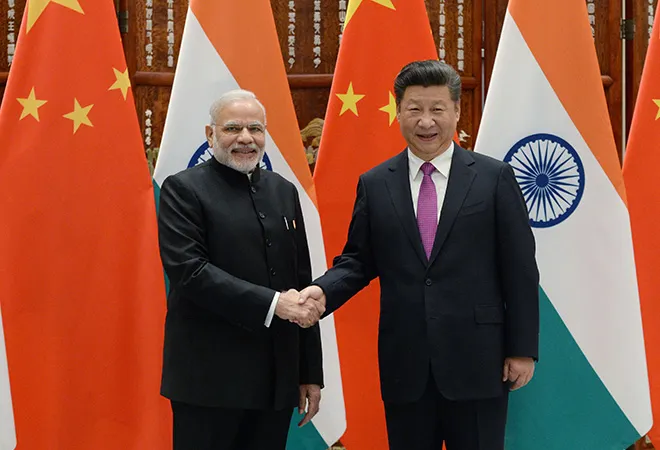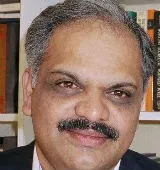Masood Azhar, a Pakistani national who heads the Jaish-e-Mohammad (JeM) terrorist group, has now been placed in the United Nations Security Council
1267 Sanctions List. This was long sought by India, who blamed Azhar and the JeM for various terror attacks in India. The issue was also a major irritant in Sino-Indian relations because China had for several years placed a “technical hold” that prevented the listing.
The Indian government was jubilant, and Indian Prime Minister Narendra Modi, who is fighting national parliamentary elections, immediately
claimed credit. Though the Indian government welcomed China’s decision, they have been cautious about whether this by itself would move the relationship forward,
stating that there are “many things” which have contributed to the “Wuhan Spirit” and “it is difficult to point out one single incident or instance which will contribute to a better India-China relationship.”
The caution is well-founded. Sino-Indian relations have improved since the Doklam confrontation in 2017. The Wuhan “spirit,” the supposed positive outcome of the informal summit at Wuhan between Modi and Chinese leader Xi Jinping, is credited with improving relations between the two countries. A follow-up informal summit is slated for later this year. China’s move on Azhar should add to the positive spirit. Still, fundamental problems remain in the relationship and they are unlikely to be easy to resolve.
Sino-Indian relations have improved since the Doklam confrontation in 2017. The Wuhan “spirit,” the supposed positive outcome of the informal summit at Wuhan between Modi and Chinese leader Xi Jinping, is credited with improving relations between the two countries.
The most important is the consequence of the changing balance of power between the two countries. From rough parity in the 1980s, China’s economy has pulled away from India at a dizzying speed, and it is now about five times as large. This has created a gross imbalance between the two sides that is likely to persist for some time to come, even if India’s marginally faster economic growth rate of the last couple of years continues into the future. This imbalance also leads to a military imbalance, as China’s military budget grows along with its wealth. Though China’s military spending as proportion of its GDP is still quite low, that should be of little comfort because in absolute terms, it is almost
four times that of India’s.
More importantly, the effect of this imbalance is likely to be felt more in the political clout that it brings to China than in a test of arms. Over the last decade, China has become bolder in wielding its economic clout, as
Evan Feigenbaum has pointed out. But even without such direct exhibitions of its power, China’s clout gives it political capacities in international settings that will be difficult to ignore. New Delhi will find that when it comes to many issues where its interest conflicts with that of China’s, China will be able to garner greater international political support than India. This is already very visible among India’s neighbors in South Asia, and its effect is possibly much more diffuse but far more potent than New Delhi yet realizes. This represents a pressure on India that will not yield in the near future, and it will limit the possibilities of Sino-Indian ties.
China’s clout gives it political capacities in international settings that will be difficult to ignore. New Delhi will find that when it comes to many issues where its interest conflicts with that of China’s, China will be able to garner greater international political support than India.
Of course, the older problem of the disputed border also remains, despite decades of negotiations. Neither side can compromise very much on this. The best that can be hoped for is that neither side will attempt to settle it by force, but misperceptions and local misunderstandings are likely to periodically recur. The Doklam confrontation was possibly the result of something along these lines; the next time, it could become more serious.
But one consequence that can be dismissed is any effect of the current general elections on the future course of Sino-Indian relations, even though China’s move comes in the midst of a hot campaign. As
Vipin Narang and Paul Staniland have noted, foreign policy has fairly low electoral salience in India. Though the ruling BJP’s campaign is pushing strategic issues in an unusually heavy manner, it is unclear what effect this will have. But even if this has some limited effect (and it will be difficult to decide this even after the election results are announced, though exit polls may give at least some clues) on the elections, its effect on subsequent Indian foreign policy may be limited. Whoever wins these elections will still have to deal with the context of China’s power and its effects on India’s options, and these are fairly limited.
One consequence that can be dismissed is any effect of the current general elections on the future course of Sino-Indian relations, even though China’s move comes in the midst of a hot campaign.
New Delhi is thus correct to be cautious about the effects of the Masood Azhar listings. And while it is at it, India should equally cautious about the so-called “Wuhan spirit” because it is not likely to last very much longer either.
This commentary originally appeared in The Diplomat.
The views expressed above belong to the author(s). ORF research and analyses now available on Telegram! Click here to access our curated content — blogs, longforms and interviews.




 PREV
PREV



